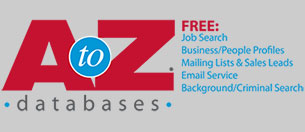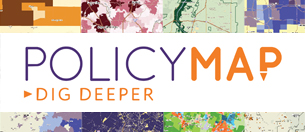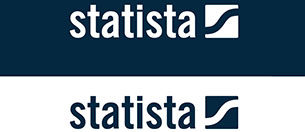

Ideal for small businesses, startups, job seekers, nonprofits, and community members. Explore business & executive profiles, detailed resident data, millions of job listings, new homeowners, and industry-specific records.

Make smarter, data-driven decisions with PolicyMap - the analytics and mapping tool built for business. Identify market opportunities, understand customer demographics, and assess risk with precision.

Stay ahead of the competition with Statista. From market trends to consumer behavior, get the data your business needs to grow, innovate, and stay informed.
Start by looking at the Business Information Research Guide on the Library's website.
Attend a seminar taught by experienced Greater Cincinnati & Dayton SCORE professionals on sales, websites, back-office functions, front-office functions and more! Dayton SCORE presents free seminars for the business community.
The Small Business Development Centers of Ohio (SBDC of Ohio) provide free, professional, in-depth and confidential business consulting and training to new and existing entrepreneurs through its network of 39 centers throughout the state. The Ohio SBDC at The Entrepreneur Center is here to help you start your business, grow your business and stay in business.
The U.S. Census Bureau provides demographic information through several online tools. Use Quick Facts or Explore Census Data to retrieve demographic and economic information by city, county, state or zip code. The new Census tools are easy to use, but if you prefer you can ask a librarian for research assistance.
Policy Map is a community analytics and mapping tool that turns complex data into clear, actionable visuals. Make smarter decisions with mapped demographics, market trends, and community indicators at your fingertips.
If you are looking for a list of new businesses in the County, check out the vendor license data compiled by the Montgomery County Auditor's Office.
If you are interested in compiling lists of business competitors or lists for marketing purposes, start with the businesses listed in the AtoZdatabase. This database contains listings for millions of U.S. businesses, U.S. households, and U.S. healthcare providers. Gale Business: DemographicsNow: Business and People also provides lists of business and much more. Access to both is free with your library card. (See: Featured Business Databases above.)
For a directory of manufacturers in Ohio, come into the Library and ask at the Reference Desk for the Harris Ohio Industrial Directory.
For lists of major employers in the Dayton area, ask for the Book of Lists from the Dayton Business Journal.
Start with our Finance & Investing Research Guide which includes links to the Library's collection of investment advisory databases. There are also many books and financial magazines and newsletters available.
This page shows library locations, hours and links to directions. In addition to walking into our branches, there are several other ways to ask your librarian for the business answers you need, including our online Business Information Consultation Form.
The Internal Revenue Service provides detailed federal tax information for businesses, with a one-stop resource for those with small businesses or who are self-employed.
The Ohio Department of Taxation provides links to services and information you need as a taxpayer doing business in the State of Ohio. Also, find out how to save time and postage with Ohio Business Gateway's electronic filing services to submit selected filings, registrations, and payments with the state's Department of Taxation, Bureau of Workers' Compensation, Department of Job and Family Services, and Department of Commerce.
If your business is located in the City of Centerville, it is also necessary to file corporate and employee income tax reports. More tax information can be obtained from the City's Finance Department.
The largest source of capital for new businesses typically comes from personal savings, family and friends, and partners. Business credit cards are widely used. To obtain a bank loan, a small business owner should present a clearly thought out loan proposal or business plan to the lender. Get some basic information on financing your business from SCORE, the Service Corps of Retired Executives.
For additional financing alternatives, check out incentive programs from the City of Centerville Economic Development. Also, you may want to investigate business incentives from Montgomery County Economic Development and Ohio Department of Development.
Government grants for starting or expanding small businesses are extremely rare.
Although government grants are extremely rare, government loans for small businesses are more accessible. The Small Business Administration offers a variety of loan programs.
The city of Centerville does not require licensing to operate a business in the city. However, it is necessary to obtain building, sign, and occupancy permits. The city has a New Business Occupancy brochure, a step-by-step guide to obtaining zoning and occupancy permits for a new or relocating business.
Like the city of Centerville, Washington Township does not require a license to operate a business. However, it is necessary to obtain zoning certificates for signs and buildings. For zoning certificates, contact the Township's Development Services Department.
Retailers with a fixed place of business in Montgomery County must apply for a vendor's license with the County Auditor. All other vendor licenses (service, delivery and transient) are issued by the Ohio Department of Taxation.
Depending on your category of business or profession, you may need to comply with additional state and federal licensing and regulations.
You will find detailed information on selecting and registering your corporate structure at Ohio Department of Development's "Start a Business" page. You can also find a complete list of business filing forms at Ohio Secretary of State's site. There you may also search filings to see if the corporate or trade name you would like to register is available.
There are many excellent "how to write" a business plan books in the Library. Additional online resources include the U.S. Small Business Administration (SBA) basic explanation and step-by-step details on writing business plans, templates, and free sample business plans.
Two excellent online sources for information on these topics are The National Women's Business Council and the U.S. Dept. of Labor's Women's Bureau. The Library also has many books on the topic of women in business.
The U.S. Patent and Trademark Office has a comprehensive site. To register a Trademark or Service mark in Ohio, please see the Secretary of State's website. The Ohio State University Libraries maintain a Patent and Trademark Resource Center (PTRC). They have a formal agreement to provide assistance to the general public in the use of patent and trademark resources provided by the USPTO.
Produced by The World Bank, Business Ready is a very useful tool for comparing business regulations across the globe. In-depth rankings, data, and reports are provided on business regulations from nearly 180 economies.
In addition to the online resources listed above, be sure to check out the books the Library has on international trade.
The Library provides access to several databases containing full-text articles from a variety of magazines, journals, and newspapers.
Online, you can find salary information at Salary.com and SalaryExpert.com. In addition, the U.S. Bureau of Labor Statistics offers compensation information in the Occupational Outlook Handbook and National Compensation Survey.